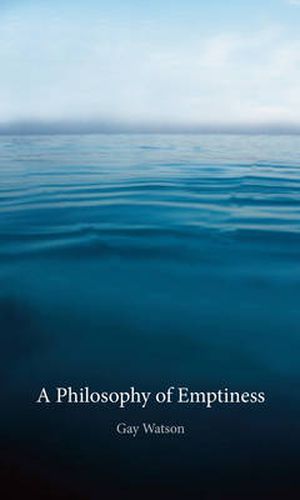Readings Newsletter
Become a Readings Member to make your shopping experience even easier.
Sign in or sign up for free!
You’re not far away from qualifying for FREE standard shipping within Australia
You’ve qualified for FREE standard shipping within Australia
The cart is loading…






In A Philosophy of Emptiness, Gay Watson reclaims emptiness as a positive, empowering state, an antidote to the obsession with substance and foundation. Via a tour of early and non-Western philosophy Gay Watson uncovers the rich history of emptiness, taking us from Buddhism, Taoism and religious mysticism to the contemporary world of philosophy, science and art practice. Watson shows that the twentieth century has seen the resurgence of emptiness, and she offers reasons why such an apparently unappealing concept might have attracted modern musicians, artists and scientists, as well as pre-eminent thinkers throughout the ages. The book probes the idea of how a life without transcendence might be lived, and why one might choose this. It links these concepts to modern ideas of the mind, and offers an intriguing take on emptiness that will appeal to all those with an interest in the history of thought.
$9.00 standard shipping within Australia
FREE standard shipping within Australia for orders over $100.00
Express & International shipping calculated at checkout
In A Philosophy of Emptiness, Gay Watson reclaims emptiness as a positive, empowering state, an antidote to the obsession with substance and foundation. Via a tour of early and non-Western philosophy Gay Watson uncovers the rich history of emptiness, taking us from Buddhism, Taoism and religious mysticism to the contemporary world of philosophy, science and art practice. Watson shows that the twentieth century has seen the resurgence of emptiness, and she offers reasons why such an apparently unappealing concept might have attracted modern musicians, artists and scientists, as well as pre-eminent thinkers throughout the ages. The book probes the idea of how a life without transcendence might be lived, and why one might choose this. It links these concepts to modern ideas of the mind, and offers an intriguing take on emptiness that will appeal to all those with an interest in the history of thought.